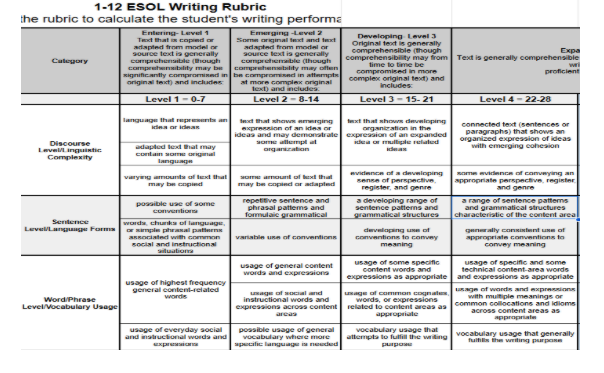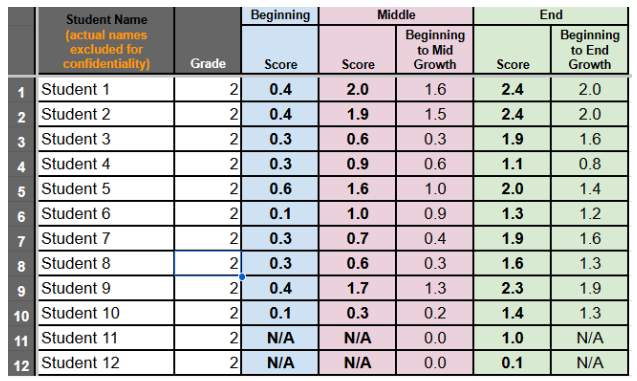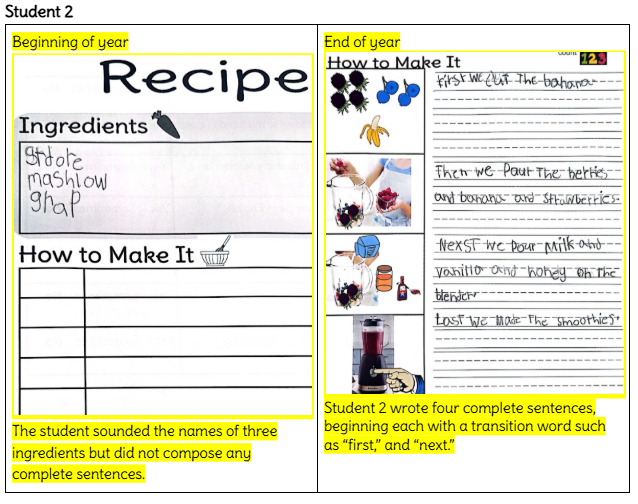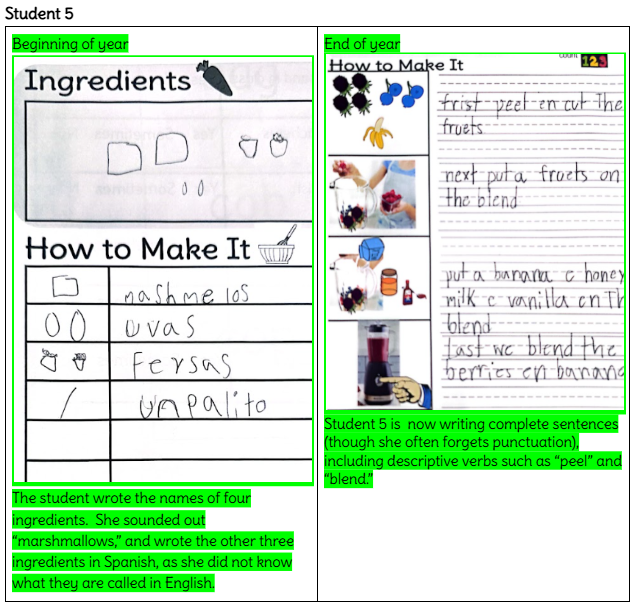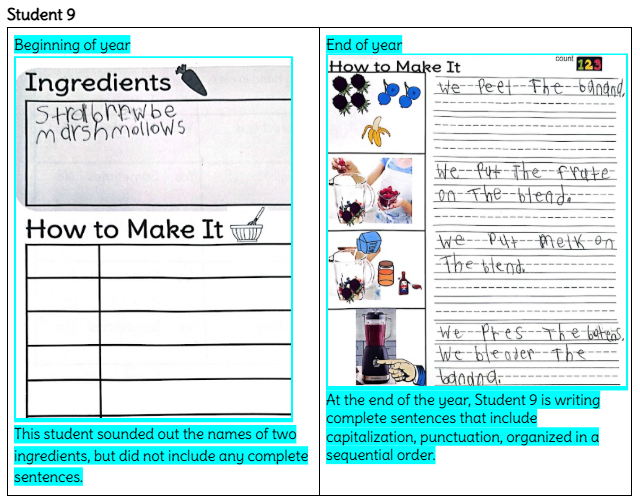INNOVATIVE TEACHING GRANT EVALUATION
Wednesday Cooking Club project @ Moncure Elementary
By: Elizabeth Robens and Mina Thompson (ESOL teachers)
Spring 2025
INTRODUCTION: Thanks to Stafford Education Foundation, we have been able to start a Wednesday Cooking Club at Moncure Elementary for early-level English Learners. All of the students in this club are in second grade, speak another language at home, and struggle in the area of writing. This club meets every week, and our instructional focus has been on writing development. At each club meeting we cook a simple recipe (such as pizza bagels, chocolate-dipped strawberries, smoothies, etc.), then students write the recipe on a graphic organizer.
EVALUATION: When we applied for an Innovative Teaching Grant for Cooking Club, we chose to evaluate its success by assessing student writing. We have used the WIDA rubric to objectively assess their level of discourse, sentence formation, and vocabulary usage. Here is the WIDA rubric, which is used across the nation to score English Learners in writing.
STUDENT DATA: Below you will find the student data for the 10 students who participated in the club all year (plus two more who were added mid-year that did not have fall data). The beginning of the year data was taken in September the first week of Cooking Club, the mid-year was taken in December and the end of year data was taken in March for the purposes of this evaluation (though we plan to continue the club through May).
ANALYSIS: We are very thrilled with the growth that our students made in their writing!
Let’s break down the data for you:
For students in grades K - 2, VDOE considers that adequate growth has been made if students add 1.0 point to their score over the course of one school year.
As the data indicates, all students made growth, with 9 of the 10 students exceeding adequate growth (1.0 point).
Two students even made 2 whole points of growth!
One student only made 0.8 point of growth, however we still have 2 months (April and May) before the year is over, and we anticipate that he will make the 0.2 additional points in that time frame.
To put this into perspective, at the beginning of the year, most students were not writing independently. They were writing between 1 and 5 words that they copied from a word bank, not forming complete sentences. In Cooking Club, we have practiced writing the recipe each week, and we have scaffolded from writing one sentence all the way up to four sentences with little to no adult help. At this time, the majority of students (aside from the two who were added mid-year) can write four sentences using appropriate vocabulary, punctuation, and subject-verb agreement. You can see some work samples below.
OTHER BENEFITS: An additional benefit that we had not anticipated, was the effect our Cooking Club instruction had on other staff members! We had six various teachers participate as “guest chefs,” including two ESOL teachers, one interpreter, and three general education teachers. The general education staff especially commented on how they appreciated the hands-on approach and authentic learning that was incorporated. We hope to see some of these EL-friendly practices included into their daily instruction as a result.
FUTURE CONSIDERATIONS: Because of the success and engagement we found this year, we hope to continue Cooking Club next year with rising 2nd graders. Another ESOL teacher has expressed interest in doing a Cooking Club with 5th grade ELs with a focus on reading functional text (recipes). We would love to continue the conversation with Stafford Education Foundation to discuss if and how we could further grow our Cooking Club in the 25 - 26 school year.
Thank you tremendously for your support this year. Our students have grown exceptionally because of your generosity!

